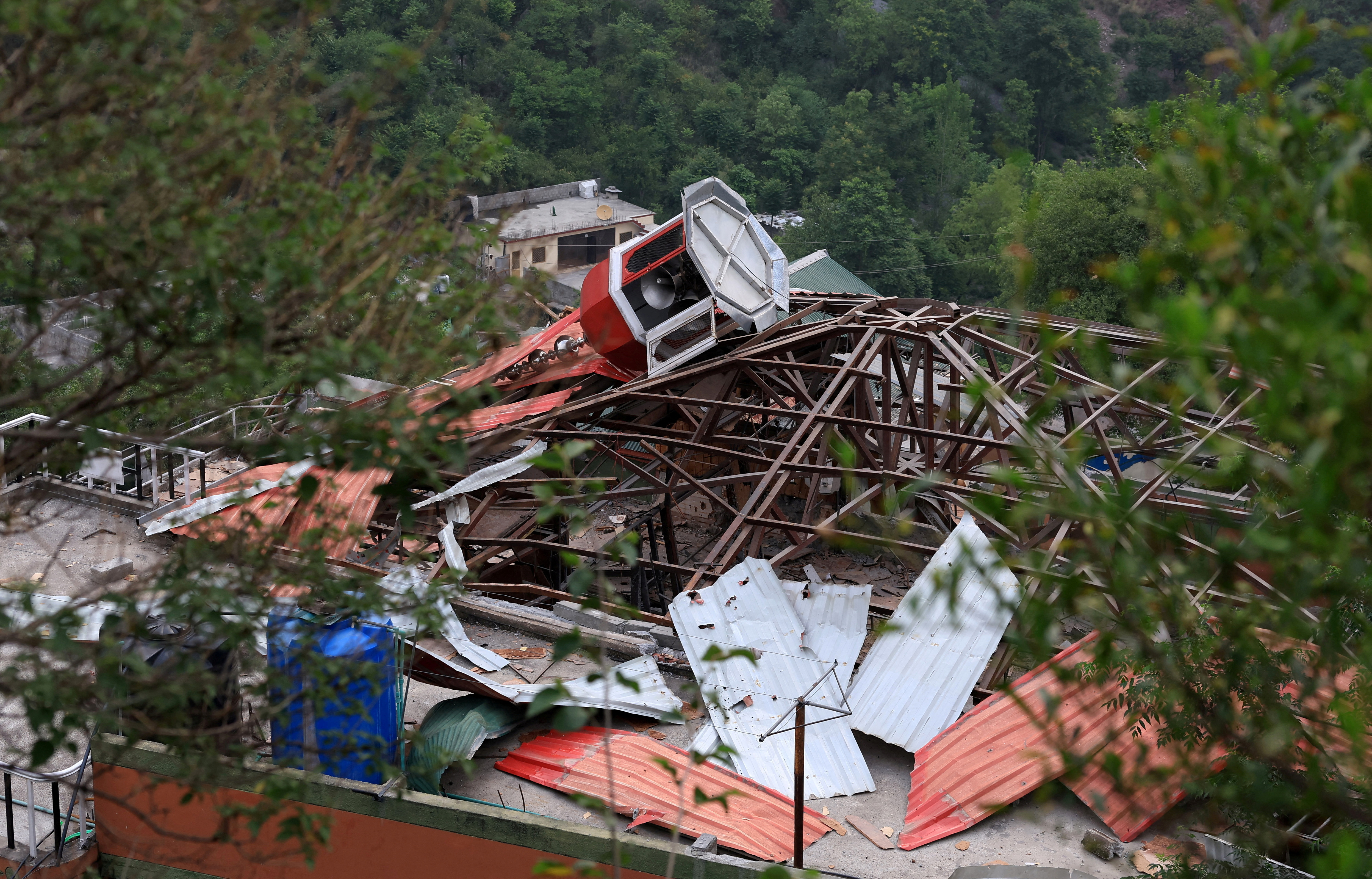There is a striking parallel between the 20-month war in the Gaza Strip and the week-old not-yet-war between India and Pakistan. Both confrontations were set off by horrendously cruel mass murders by terrorists whose goal was obviously to start a war that drew the attention of the world back to their own goals and grievances.
Hamas, in the Gaza Strip, was keenly aware that the Palestinian cause was gradually fading from the international agenda. Seventy-five years of failure to push back successfully against Israeli control of the disputed territory of former Palestine had left the rest of the Arab world keen to change the subject.
The ‘Abraham accords’ were the last straw from the perspective of the Palestinians: an Israeli-Saudi peace deal would be the death knell for their hopes of building a state on the land they claimed, or at least part of it.
Only a big war could reawaken Arab and Muslim concern for the plight of the Palestinians, so Hamas chose to start one. It began with as big an atrocity as possible: more than 1,200 Israelis killed, many of them in their beds. Israel took the bait, but under Israeli Prime Minister Benjamin Netanyahu’s hard-right coalition its response far exceeded Hamas’s expectations.
More than 50,000 dead Palestinians later, two million survivors in Gaza await expulsion and exile. Hamas’ strategy was absolutely standard for nationalist guerillas fighting foreign rule, but the brutal truth is that most such wars end in failure.
The goal is almost never military victory, which is rarely possible. It’s international sympathy and support, which may gradually shift the balance in favour of the insurgents. Hamas’ mistake was to misjudge Israel’s strength and its ruthlessness, and the Palestinians it ruled are paying the price.
The five terrorists who massacred 28 mostly Hindu tourists two weeks ago in India’s Muslim-majority state of Kashmir were Kashmiris or Pakistani citizens of Kashmiri descent. Their grievance was that India has ruled most of Kashmir since independence from Britain in 1947, and their goal, as in Gaza, was to trigger a war: in this case, another Indian-Pakistani war.
As India’s only Muslim-majority state Kashmir has traditionally had special legal status, but the Hindu-nationalist prime minister of India, Narendra Modi, revoked its autonomy in 2019. Since then the state has been flooded with Indian Army troops and paramilitaries, many local politicians are in jail, and the state resembles an occupied country.
There is widespread popular support in Kashmir for a return of autonomy and withdrawal of the troops, but only limited backing for armed resistance. There are nevertheless several guerilla groups active against the Indian occupation, and sometimes in the past they have enjoyed discreet support from the Pakistani government. At other times they haven’t.
Since guerilla war/terrorism will never defeat the huge Indian army, the insurgents’ only hope is to provoke a war that ends with an Indian defeat and the ‘liberation’ of Kashmir. India, as usual, insists that the Pakistani government was behind the attack, but that seems unlikely because the Pakistani military know that a war with India would probably end in defeat.
Modi nevertheless took the bait, ordering major aircraft and missile strikes against Pakistan on May 7. Pakistan claims to have shot down several Indian aircraft, and Prime Minister Shehbaz Sharif initially tried to avoid further tit-for-tat escalation by declaring that those allegedly downed Indian aircraft were a fitting and final retaliation by Pakistan.
However, at the time of writing that caution seems to have been overwhelmed by the inflammatory rhetoric on both sides, with drone attacks crossing the border in both direction. Escalation to an Indo-Pak nuclear war would be unfortunate, with fallout and famine across the whole northern hemisphere, but a sense of proportion is strikingly absent.
The parallels between the two conflicts are partly driven by the strategies that govern almost all ‘asymmetric’ wars, but there is a deeper sense in which both conflicts are the result of British mistakes made in the dying days of the empire.
The partitions of India and Palestine may have been unavoidable when the British empire withdrew in 1947. However, the reckless haste with which a Britain, bankrupted by the Second World War, dumped its commitments and pulled its troops out made the ensuing wars in those territories – and many later wars too – all but inevitable.
So remember, if and when the genocidal expulsion of Palestinians from Gaza gets underway or the mushrooms clouds bloom over Lahore and Delhi, that while there is plenty of blame to share out among the current crop of local politicians, the root cause of all this looming tragedy was the British empire.
Gwynne Dyer’s latest book is Intervention Earth: Life-Saving Ideas from the World’s Climate Engineers






Click here to change your cookie preferences